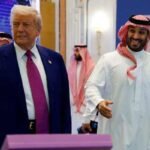A wide network of federal officials, including members of the US intelligence community, has reportedly been coordinating efforts to support President Donald Trump’s campaign to take action against individuals and agencies he believes acted unfairly against him. According to official documents and a source familiar with the matter, the initiative is being led by a special task force known as the Interagency Weaponisation Working Group.
This working group, which has been operational since at least May, consists of representatives from several key branches of the federal government. The members include officials from the White House, the Office of the Director of National Intelligence (ODNI), the Central Intelligence Agency (CIA), the Department of Justice (DOJ), the Department of Defense (DoD), the Federal Bureau of Investigation (FBI), the Department of Homeland Security (DHS), the Internal Revenue Service (IRS), and the Federal Communications Commission (FCC), among others. Two government documents reviewed by reporters confirm the participation of these agencies.
The move follows President Trump’s executive order issued on his inauguration day in January, which directed the attorney general to collaborate with other federal departments to investigate and address what he described as “past misconduct by the federal government related to the weaponisation of law enforcement and the Intelligence Community.”
This order underscores Trump’s long-standing claim that elements within the federal bureaucracy and intelligence agencies had been used for political purposes during and after his previous administration. The president’s directive seeks to identify and “correct” any instances where government power may have been misused against him or his associates.
While details about the internal operations of the Interagency Weaponisation Working Group remain limited, its establishment signals a broader government-wide effort to reexamine the role of intelligence and law enforcement agencies. Supporters of the move argue that it is necessary to restore public trust in federal institutions, while critics warn that it could blur the line between legitimate oversight and political retaliation.




